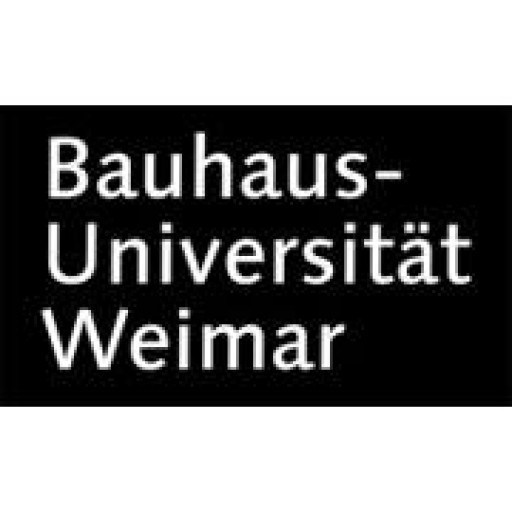Photos of university / #tu_berlin
The Master's program in Global Production Engineering for New Energy Technologies (GPE NET) at Technische Universität Berlin is a forward-looking, interdisciplinary program designed to prepare students for leadership roles in the rapidly evolving sector of renewable energy and sustainable production systems. This innovative curriculum combines advanced engineering principles, innovative production techniques, and sustainable energy technologies to address the global challenges of energy transition and environmental preservation. Students will gain a comprehensive understanding of the design, optimization, and management of production processes related to new energy sources such as solar, wind, hydrogen, and other renewable energies. The program emphasizes the development of practical skills through laboratory work, project-based learning, and industry collaborations, enabling graduates to apply their knowledge in real-world scenarios. Participants will explore topics including manufacturing processes for renewable energy components, energy system integration, automation, digitalization of production, and lifecycle assessment of energy technologies. The program also fosters interdisciplinary thinking, innovation, and entrepreneurship, encouraging students to develop sustainable solutions for energy production and storage. The academic structure includes core courses, electives, and a research thesis, guided by leading experts from TU Berlin and collaborating industry partners. Graduates will be equipped to contribute to the global energy transition by designing efficient, sustainable, and economically viable production systems for next-generation energy technologies. This program is ideal for engineers, scientists, and industry professionals committed to making a significant impact in the field of renewable energy and sustainable industrial processes.
Educational organisation
120 credits must be obtained over four semesters in order to be awarded the degree Master of Science in Global Production Engineering.The GPE New Energy Technologies programme is structured into five module groups, each consisting of at least two modules. Each module is worth credit points (CP) based on the European Credit Transfer System (ECTS). One credit point is worth a workload of 30 hours. The workload includes the lecture hours, exercises, preparation, exam, etc.
During the first three semesters, students shall pass modules with a total of 90 CP. Students have to complete at least 12 CP from module groups A, B, C, and D, and at least 6 CP from group E (total: 54 CP). A further 36 CP have to be chosen out of all the other modules (e.g. more than one module can be chosen from "Production") to gain a total of 90 CP. The five module groups are:
- A Production
- B Engineering
- C Management
- D Intercultural Communication
- E Special Profile
Additionally, students have to attend a workshop for "intercultural communication and relationships" and a seminar on "scientific working."
In semester four, an industrial internship of at least nine weeks (12 CP) must be completed. Towards the end of the programme, a Master's thesis must be written (18 CP) in order to complete the programme.
Within the international GPE New Energy Technologies study course, students have the opportunity to choose their core direction and to specialise in the fields of solar electricity, solar thermal or renewable energies. TU Berlin will confer the degree of Master of Science (MSc) in Global Production Engineering.
Internships
A nine-week (minimum) internship has to be completed. The internship can be done at any company in any country except your home country.Forms of assessment
- A written or oral final exam is administered at the end of a course or equivalent coursework.
- Several graded exercises must be completed in each class.
Course objectives
The objective of GPE New Energy Technologies is to train engineers who have expertise in the management of renewable energy projects. Graduates will not only be able to undertake projects from a technological perspective, but will also have the legal, policy, and economic background to take the right decisions on project management and business development in a multicultural environment.Graduates can work in the production industry, in consultancy, in the policy area, as well as at training and research facilities. Typical working areas for GPE New Energy Technologies graduates are:
- Environmental administrative and supervisory agencies at the community, regional, or federal level
- Universities and research institutions
- Engineering and planning enterprises for photovoltaic systems, solar thermal systems, wind energy systems, biogas systems, as well as energy transformation and distribution
- Energy production companies
- Research and development departments
- Consulting firms
- NGOs
- Grid integration, rehabilitation and operation
- Management of renewable energy projects
Language requirements
If you have studied in the UK, Ireland, the USA, Canada, Australia or New Zealand, your Bachelor's certificate is accepted as proof of your English proficiency.If this is not the case, the following tests/results are accepted:
IELTS 6,5 or TOEFL IBT 70 or TOEFL CBT 190 or TOEFL PBT 520 or CAE pass or CPE pass (minimum scores)
Generally, tests should have been taken not more than twelve months prior to your application.
Language skills in German are an advantage.
Academic requirements
Requirements for successful application to the GPE study programme are:- Bachelor of Engineering or equivalent (excellent grades)
- English proficiency, at least: IELTS 6.5 or TOEFL IBT 70 or TOEFL CBT 190 or TOEFL PBT 520 or CAE pass or CPE pass
- At least one year of professional experience
- Knowledge of German is advantageous.
Enrolment fees
Approx. 300 EUR per semester, including a public transport ticket for Berlin and administration fees for TU BerlinCosts of living
700-800 EUR to cover personal expenses, depending on personal lifestyleJob opportunities
It is possible to work as a student research assistant or a teaching assistant at the TU Berlin. Many job opportunities are available to students. Students also may apply as student workers in the Berlin region at companies such as Siemens and Bombardier.Arrival support
A welcome guide will be sent prior to your arrival in Germany, describing all important aspects of living in Germany, especially focused on life in Berlin. In addition, to help you get started in Berlin and within the GPE programme, we offer a senior-junior programme. This programme is designed to help you throughout your first semester and especially during the first couple of weeks in Berlin. Seniors are experienced GPE students who have volunteered to take part in this initiative. Your senior will pick you up at the airport, and will help with your registration and residence permit. Seniors can also introduce newcomers to student life in Berlin.Services and support for international students
The programme offers extensive services including individual guidance regarding the structuring of course selection, a senior student programme including pick-up service at the airport, supporting and advising new students, an introduction event where you will be introduced to TU Berlin, the GPE programme, a module presentation, a presentation of important regulations, lecturers and professors and much more. Services also include a PC pool reserved for GPE students including print service, library facilities, special literature in English, a separate examination office (to avoid long waiting periods), the GPE campus management system, application and soft skill trainings, a collection of internship and job contacts, and a Graduate Alumni Partnership network (GAP). The programme provides a long list of companies that have already employed a large number of GPE graduates, including Daimler Benz, Rolls Royce, Siemens, BMW, VW etc. Students can also participate in visits to fairs, companies, and important industry regions such as the Hannover Fair, Inter Solar, Solar Valley, etc.Accommodation
There are several possibilities for finding accommodation in Berlin. Student dormitories as well as single apartments or larger apartments shared with flatmates are popular among German students. The average costs for an apartment or a room in a shared apartment may vary from 250 EUR to 400 EUR per month depending on the size and configuration of the apartment. Utility costs of 50 to 80 EUR are usually not included in the rent. Your senior will support you in finding an appropriate accommodation.http://www.house-of-nations.com
http://www.studentenwohnheim.de








